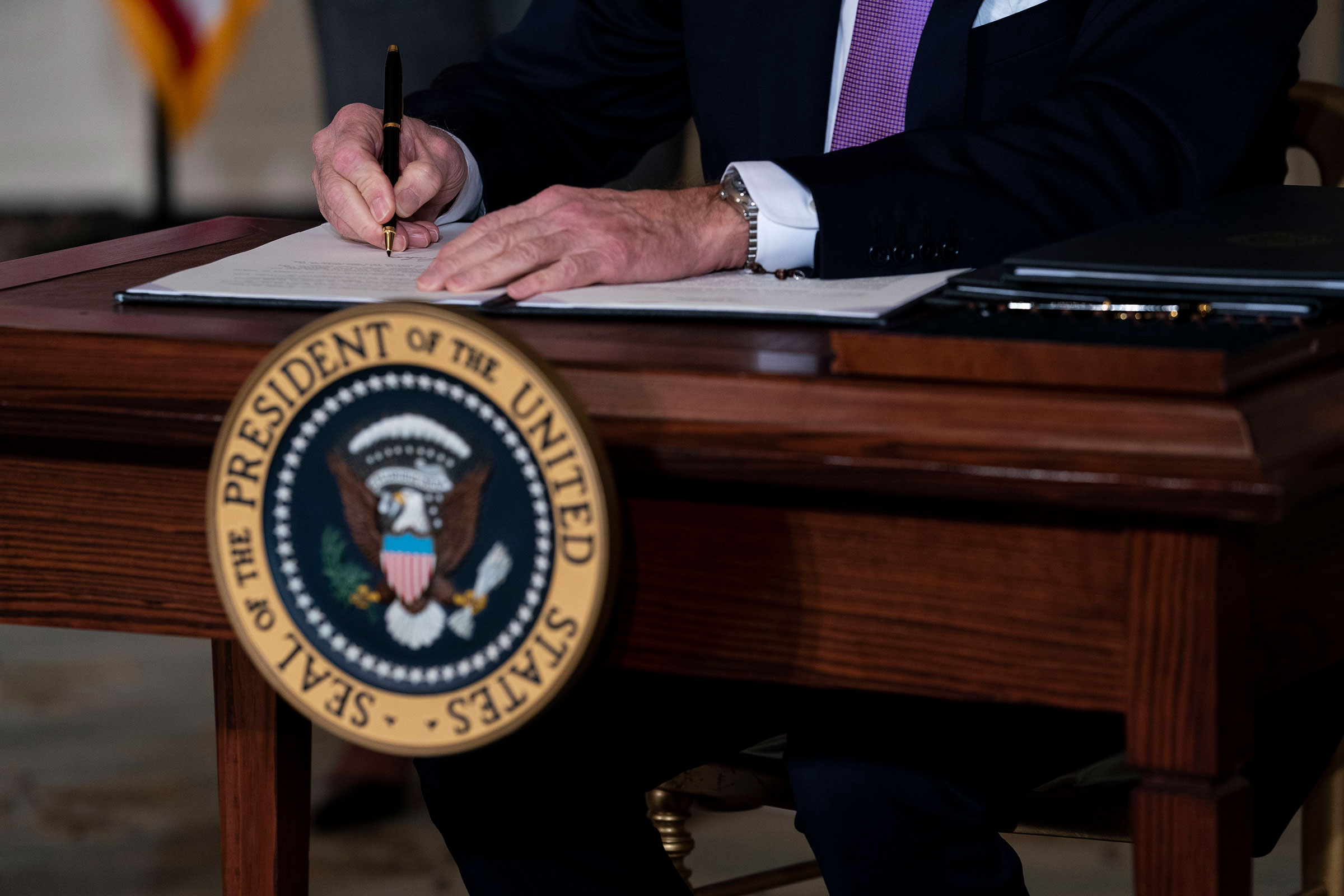
This article is part of the The DC Brief, TIME’s politics newsletter. Sign up here to get stories like this sent to your inbox every weekday.
Ping-pong diplomacy broke the Cold War fever. In the United States, ping-pong policy followed, and more or less has set the course of what the nation stands for ever since. Today the United States is perhaps the most consistently evolving brand on the planet.
For better or for worse, a lot of the United States’ posture hinges on what party’s leader is sitting in the White House. Every four or eight years, the incoming administration resets America’s policy priorities. When Democrats are in power, foreign NGOs are allowed to discuss abortion. When Republicans are in power, recipients of U.S. dollars had better keep their clams shut. When Democrats have the keys, big, multilateral agreements are the order of the day. When Republicans have the reigns, buckle in for very targeted agreements.
Denizens of Washington are conditioned to this whiplash by the time the Inauguration scaffolding starts to go up on Capitol Hill. But rarely is it felt quite so acutely around the world as it is right now, as President Joe Biden starts to unravel the policies of former President Donald Trump. Biden’s long list of executive orders has returned the United States to a massive climate regime signed in Paris. He is letting foreign NGOs that receive U.S. money talk about abortion again. He has rejoined the World Health Organization, scrapped a ban on travel from majority-Muslim countries and pushed pause on deportations for those in the country illegally but don’t pose an immediate security risk.
It’s part of the beauty and the freak-show that is American democracy. Voters decide every four years who wields the nearly-unlimited executive power of the U.S. presidency. With the results usually contingent on a few thousand votes in a small group of states, America’s global footing hinges on how a handful of folks feel on a Tuesday in November. Whether or not America believes in rising sea levels pivots based on a few precincts in Pittsburgh. Access to abortion in Albania depends on whether the College Democrats in Athens, Ohio, can activate the list. Whether the wall in Juárez remains may depend on who walks the West Wing Colonnade in the morning.
So far, nine full days into office, Biden has signed 42 executive actions, most of them undoing steps taken by his predecessor. The pace is not unexpected for the early days in a presidency, but it’s a jarring reminder of just how much depends on who picks up a pen in the Oval Office. Four years ago, Donald Trump signed a slew of executive orders that unspooled moves by Barack Obama, who in his first weeks worked to reverse George W. Bush’s agenda. It’s entirely predictable, and an important reminder that America’s values are often based on one person’s actions.
It’s also a reminder that so much of what it means to be an American hinges on who U.S. voters send to Washington, especially the White House. As much as Americans want to believe there is a set standard about what Americanness is, it’s often a byproduct of a messy democratic process. Four years under Trump showed just how malleable it can be — indifference to Russian meddling, international isolationism on science, stern refusal on global trade. With Biden coming to power, it’s mostly a return to what came before Trump. But in four or eight or 12 years, it can just as easily go back. As we consider what America means, it’s worth remembering this: ping-pong can be fast, and unforgiving.
Make sense of what matters in Washington. Sign up for the daily D.C. Brief newsletter.
More Must-Reads from TIME
- Introducing the 2024 TIME100 Next
- The Reinvention of J.D. Vance
- How to Survive Election Season Without Losing Your Mind
- Welcome to the Golden Age of Scams
- Did the Pandemic Break Our Brains?
- The Many Lives of Jack Antonoff
- 33 True Crime Documentaries That Shaped the Genre
- Why Gut Health Issues Are More Common in Women
Write to Philip Elliott at philip.elliott@time.com